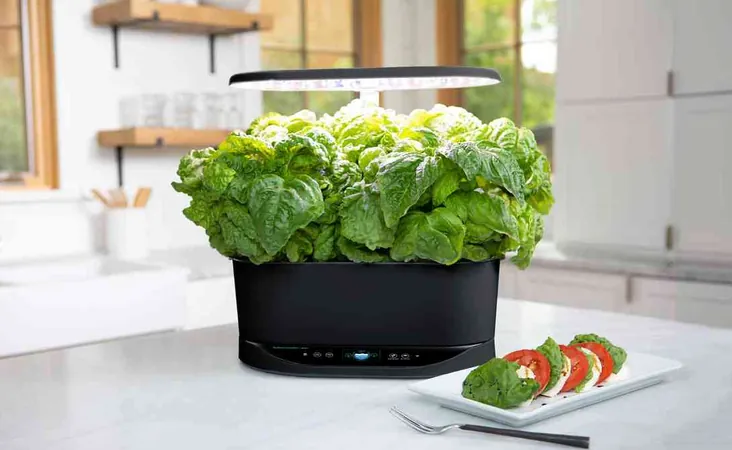
The Rise and Fall of AeroGarden: A Cautionary Tale About the Internet of Things
2024-10-14
Author: Rajesh
Introduction
AeroGarden, the innovative company known for its Wi-Fi-connected indoor gardening systems, is set to close its doors on January 1, marking a significant development in the rapidly evolving world of smart home technology. Despite the impending shutdown, Scotts Miracle-Gro has decided to continue selling AeroGarden products, though the future of their essential companion app remains uncertain.
The Founding and Innovation
Founded in 2006, AeroGarden revolutionized home gardening by utilizing hydroponics and LED technology, allowing users to cultivate plants indoors without sunlight or soil. In 2020, Scotts Miracle-Gro acquired full ownership of the brand, which seemed to promise a bright future for the technology. AeroGarden's smart systems connected to iOS and Android apps enable users to monitor their plants' needs, from watering to nutrient levels, offering real-time tips and even access to gardening communities.
Challenges and Competition
However, the company’s abrupt decision to cease operations raises questions about the sustainability and competitiveness of such innovative products. AeroGarden hinted at facing countless challenges in a statement on its FAQ page, yet specific details were scarce. The rising competition from cheaper alternatives available on retail giants like Amazon might have been a significant factor.
User Concerns
Interestingly, only months before the announcement, AeroGarden updated its app, giving the impression that the brand was moving forward. They assured customers that the app would remain functional for an extended period during the transition, yet the lack of clarity about the app's future continues to worry loyal users, especially those who invested in the high-end Bounty and Farm models, with prices starting around $595.
Calls for Open Source
As users ponder the fate of their smart gardens, there are calls for AeroGarden to open-source its app protocol, which could help maintain functionality post-shutdown. While this move could prevent their devices from becoming obsolete e-waste, it also carries risks of unauthorized usage and potential hacking, something that a brand like Scotts Miracle-Gro would likely avoid associating with.
Company Assurance and Future Outlook
Even in the face of such uncertainty, AeroGarden assures customers that they can still access their accounts until March 1, while their products will remain on sale through Amazon till the end of 2024.
Conclusion
This demise serves as a stark reminder of the fickle nature of the Internet of Things (IoT). Customers investing in smart technologies are often left at the mercy of their manufacturers' business decisions, leading to concerns not only about financial loss but also about the environmental impact of discarded devices. The swift rise and fall of AeroGarden underscore the need for clearer communication regarding the longevity of smart devices, prompting demands for regulatory measures that would require companies to provide information on product updates and support timelines.
As the smart gardening trend captures public interest, will AeroGarden's shutdown discourage others from entering this niche market? Only time will tell, but for now, this cautionary tale serves as a wake-up call for tech enthusiasts and environmental advocates alike. Don't miss out on the debate surrounding the future of smart home technology—stay tuned!



 Brasil (PT)
Brasil (PT)
 Canada (EN)
Canada (EN)
 Chile (ES)
Chile (ES)
 España (ES)
España (ES)
 France (FR)
France (FR)
 Hong Kong (EN)
Hong Kong (EN)
 Italia (IT)
Italia (IT)
 日本 (JA)
日本 (JA)
 Magyarország (HU)
Magyarország (HU)
 Norge (NO)
Norge (NO)
 Polska (PL)
Polska (PL)
 Schweiz (DE)
Schweiz (DE)
 Singapore (EN)
Singapore (EN)
 Sverige (SV)
Sverige (SV)
 Suomi (FI)
Suomi (FI)
 Türkiye (TR)
Türkiye (TR)